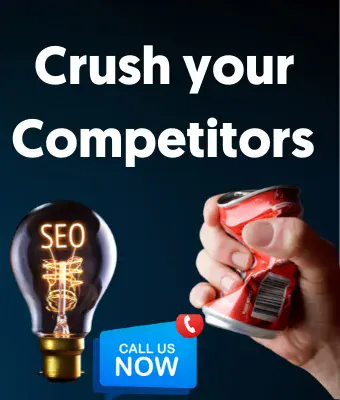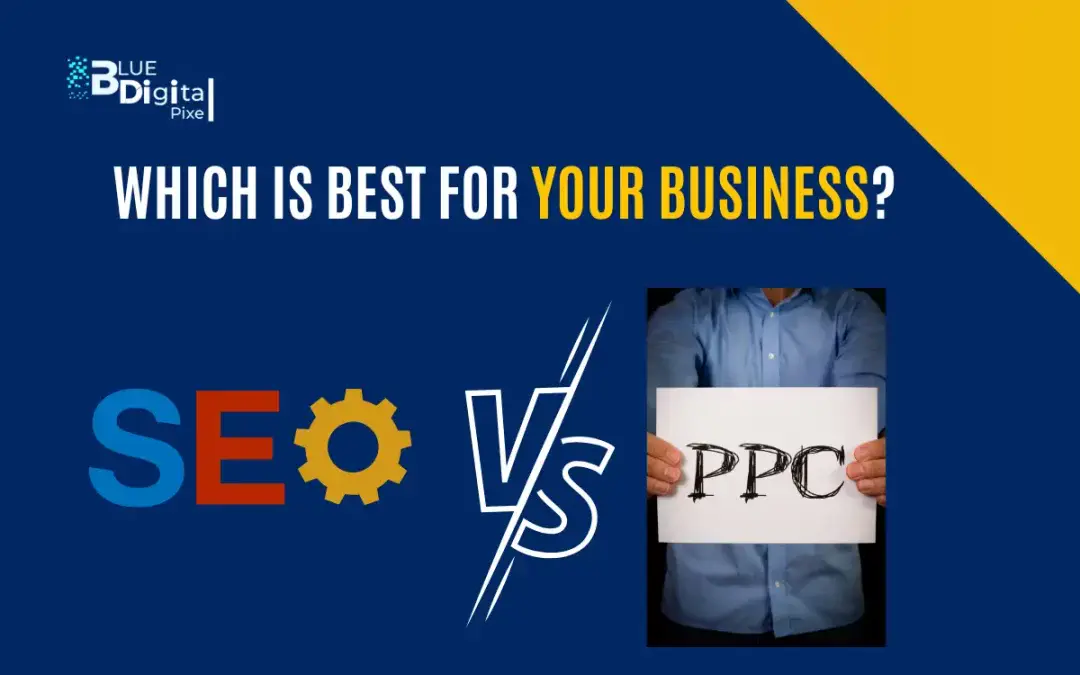
SEO vs PPC: Which is Better for Your Business?
What do you think that SEO is better or PPC is better in terms of effectiveness?
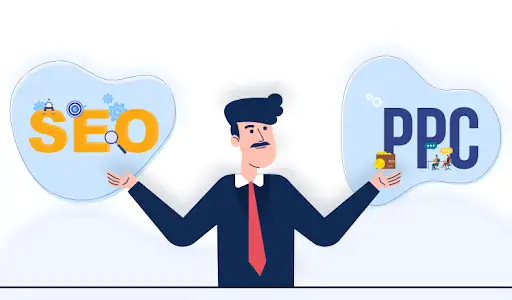
SEO vs PPC
You have been asked a loaded question. By implying that one is superior to the other, it is incorrect. One of the most common mistakes organizations make when attempting digital marketing is pitting paid search against SEO, to the detriment of their bottom line.
Instead, we recommend that you determine:
Which will provide the greatest return for your objectives: SEO or PPC?
A little less catchy, but considerably more valuable.
This section will assist you in answering the second, far more profitable question. We’ll examine the differences between SEO and paid search, their advantages and disadvantages, and most importantly, which is the better investment based on your business’s specific objectives.
What is SEO?
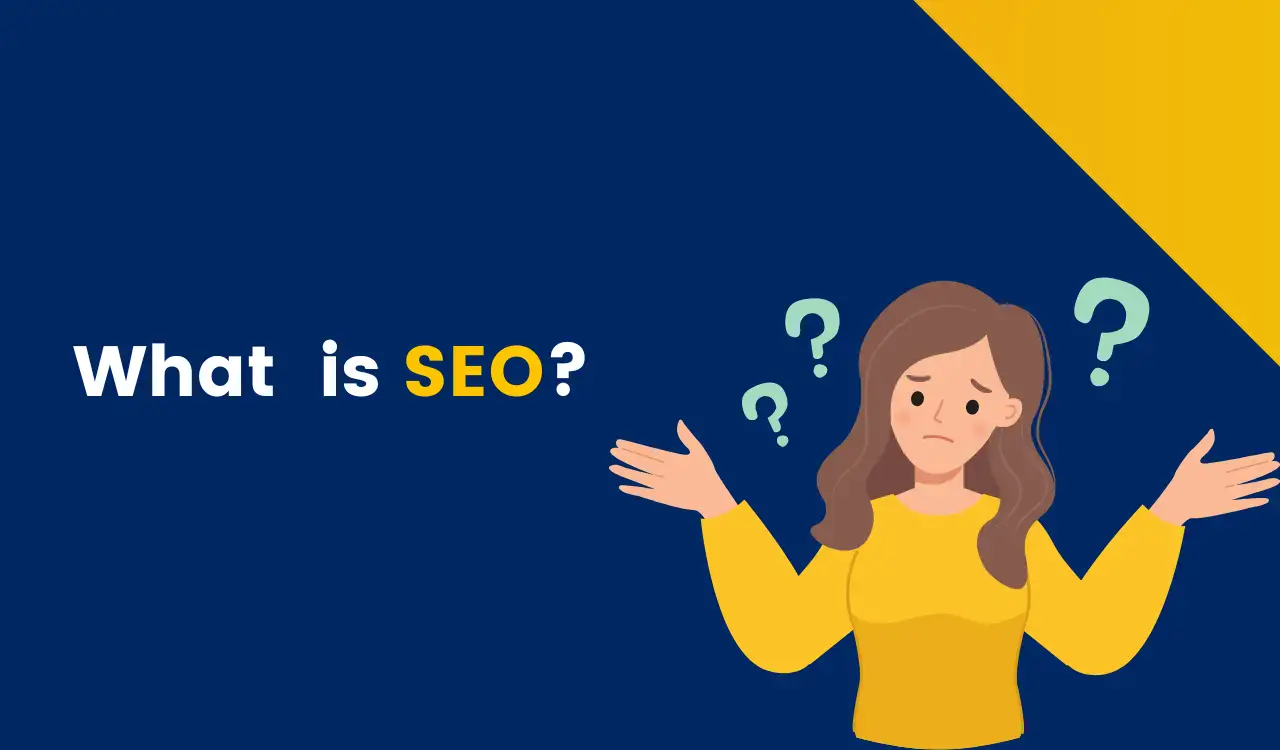
SEO vs PPC
SEO is an abbreviation for search engine optimization. SEO is the process of taking steps to make a website or piece of content more visible on Google and Bing.
SEO is the process of making online content better so that search engines like Google put it near the top of the results page when a user does a search.
Think about it like this: To find a recipe, ingredients, and cooking directions for “ramen,” someone will most likely type “ramen recipe” into Google. There are a lot of people out there who are interested in learning how to make Ramen. To get discovered, you must outrank all other Ramen recipe websites. While SEO marketing isn’t always simple, that’s the whole point of it.
Because of the time, it takes to see the results of your work, SEO is a lot like running a marathon and not a 100-meter race.
To improve its position in organic search results, you need to make changes or enhancements to your website, and for that, you should consider hiring an SEO expert, or using some proven SEO tactics to get higher in the search results.
The popularity of your links and the quality of your content will play a role in where you appear, but don’t expect any sudden shifts in your position. Google and other search engines use over 200 SEO ranking factors to determine how your website ranks in its search results.
Pros of SEO
Free of Cost
Google’s organic rankings are only based on what the algorithm thinks are the best results for each search.
This implies that if you’ve developed a page that a search engine thinks is worthy of pointing their visitors to, it might continue to drive traffic to your website for months (or even years) after it has been published.
Creating and researching high-quality content needs financial investment. Depending on whether you design it yourself or hire a digital marketing agency, this investment could be in time or money.
But once you’ve made that first investment, it won’t cost you anything else to keep bringing people to your site.
Depending on the subject matter, you may be required to update the page every few months. If your competitors decide to go after the same keyword, you may need to improve and add to your content.
In the end, though, your valuable position in the search engine rankings is free.
2. High ROI
In recent years, SEO has performed exceptionally well in terms of ROI. In fact, a recent study found that Google is the most popular way for people to find websites. It is much more popular than social media sites. This proves how important it is to be near the top of the Google search results.
SEO’s ability to bring in high-converting traffic is one of the main reasons why it has such a high return on investment. The goal of search engine optimization is to get your products seen when people are actively looking for them.
When a buyer searches, they are in the market to purchase, and if they see your site at the top of the search results, they will become customers. An SEO expert will be able to draw out the best ROI for you, it will bring the best out of his research with SEO tactics that are needed to bring your site up to the top position.
3. Long-Term Benefits
When all of the best practices for SEO have been executed, such as providing all the best SEO practices that have been used, like making keyword-rich, high-quality content and building a strong linking profile, the results will last longer than your efforts.
After PPC has reached its highest point, the return on investment for SEO will continue to rise steadily. That means that people will keep coming to your website for an infinite amount of time.
4. Expand Your Reach:
Recommendations made by customers to one another are not likely to die out very soon, despite the significant role they play in the expansion of businesses. But most businesses don’t know that search engine optimization (SEO) lets them reach a much larger network of potential customers than word-of-mouth advertising can. Your website has the potential to significantly increase the number of people who are familiar with your organization.
5. You can Target different Funnel Stages with SEO:
Your audience is not all in the same stage of the sales funnel.
Some are just becoming familiar with your brand at the beginning of the sales funnel. Others have already gotten to the bottom of the funnel and are ready to pay.
Using SEO, you can produce a variety of content formats (blog articles, manuals, case studies) that address each target segment precisely where they are in the sales funnel. This makes it more likely that people who read your content will move on to the next step in the sales funnel.
Cons of SEO
1. You have to be Patient
The amount of time necessary to produce results is one of the major disadvantages of SEO. SEO is a cumulative procedure. Before figuring out how long it will take to get going, there are many things to think about.
Google itself recommends that an SEO company wait between four and twelve months for results. If you’re looking for a quick way to raise your earnings, SEO is probably not your best option.
2. It requires High-level Skills and Expertise.
Suppose you are not going to hire a professional to optimize your website for search engines. In that case, you need to make sure that you comprehend the requirements of your audience and provide high-quality material to fulfill those requirements.
It is time-consuming and difficult to run a business while also attending technical SEO, writing, and link-building seminars, but it is possible to do so if you are devoted to implementing an SEO plan to generate cash flow for your company.
3. It Requires Regular Maintenance
If you want to keep or increase your website’s ranks, you need to regularly review and change various aspects of your SEO strategy, such as keyword research, content updates, link development, and other aspects of SEO.
Why should you choose SEO?
SEO is essential since it ensures that search results are accurate. It eliminates as much as possible the opportunity to influence these results so that the sites that appear for each search are there because they deserve to be. If your site fits these requirements, it will have a greater chance of appearing in the search engine results.
They have faith in search engines. Users will know that your website is a good resource if it ranks highly in search engine results. The higher your position on search engine results in pages, the more clicks, and traffic you will receive. SEO also makes the user experience better, which makes it more likely that shoppers will buy from the site again.
And SEO is inexpensive. Competitive industries may invest substantial sums in purchasing website traffic. Obviously, you can still purchase ad space, but if you’re on a tight budget, SEO is a fantastic way to bring qualified traffic to your website without spending money.
What is PPC?
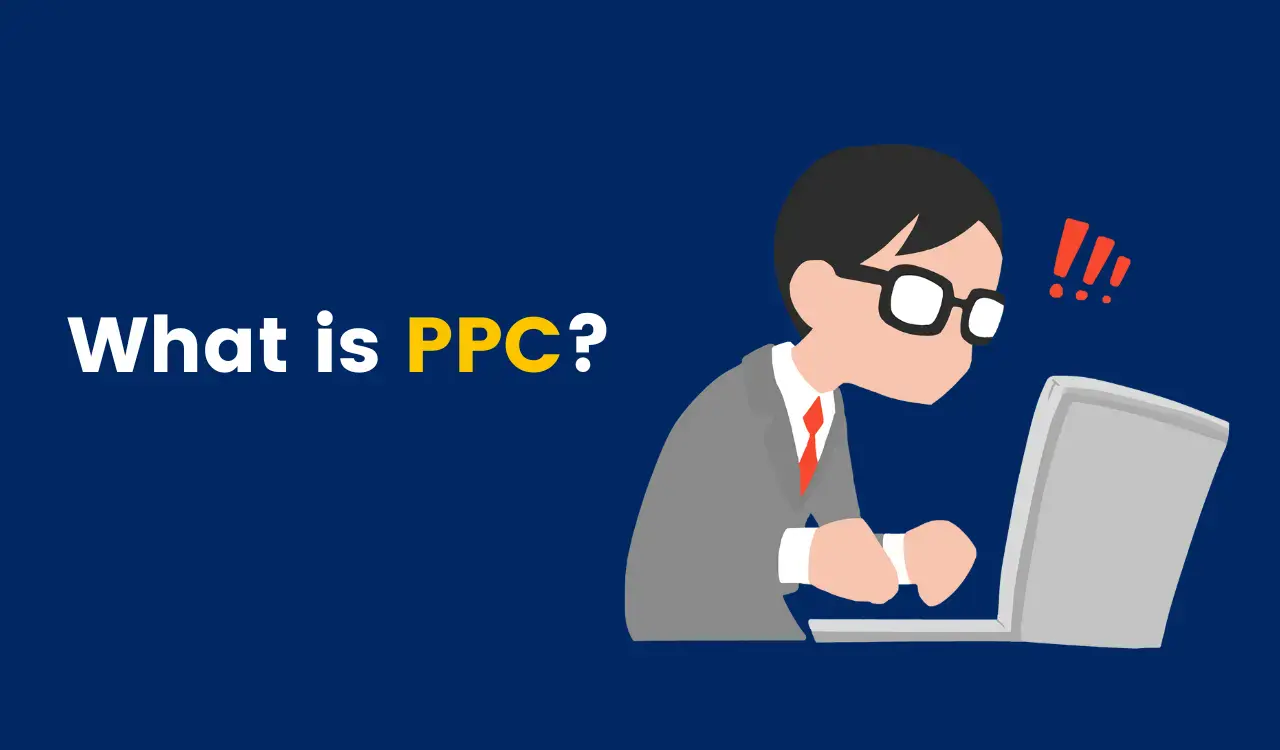
SEO vs PPC
PPC, which stands for pay-per-click, is a strategy of online advertising in which advertisers post ads on a platform such as Google Ads and pay a charge each time a user clicks on them.
Ads show up at the top of the results page for nearly every search on Google (or Bing).
PPC is used by businesses to get customers, make sales, or hear from people in their target market. Common PPC tools, like Google AdWords and Bing Ads, can be used to show ads to specific groups of people.
A sale can be made if there is an active audience looking for what your company has to offer. Search engines are the main way that consumers look for both products and services.
It is possible to target these folks with a level of precision that traditional advertising can not match with PPC advertising.
Looking for someone in India who wants to buy a used BMW? It’s a simple task.
With pay-per-click (PPC), you can reach your target audience right when they are actively looking for a company like yours. You can also get valuable data insights that will help you improve your campaign over time.
Pros of PPC
1. Fast Results
Time is a valuable commodity in business. To put it another way, you want your ads to start generating results as quickly as possible.
It’s possible to see an increase in traffic to your website within a few days by using pay-per-click (PPC).
Search engine users who are looking for solutions to their problems or products linked to your website will find your ads at the top of the results and will click on them. It’s a simple setup, but it works wonders.
2. Highly Targeted
Reaching the right people with your ads is absolutely necessary if you want your campaigns to be successful. Another important benefit of pay-per-click (PPC) marketing is that you can target each ad to a specific demographic.
You may target your advertising in a number of different ways, including choosing keywords and basing it on who you want to see it. You can increase the number of people who are likely to buy your product by customizing your marketing efforts to target people based on their demographics, hobbies, or locations.
When trackable URLs are used to keep an eye on a campaign, important information about the source of tracking will also be given.
3. Run A/B tests on a PPC ad
During a pay-per-click (PPC) campaign, you are able to run two different ads at the same time to compare their conversion rates.
You will only need to make some adjustments to certain components of the advertising, such as the ad copy, and then let the ads continue to run for some time. Depending on how well your Google ads are doing, you might decide to “kill” them or keep tweaking them to get the best results.
4. Branding
Using pay-per-click marketing techniques is a big help when it comes to building a brand. It doesn’t matter whether a customer clicks on the ad that appears in the search results or not, they will still be able to find out the company’s name and website. This knowledge could come in handy for future product launches or large-scale marketing campaigns.
Cons of PPC
1. It is Expensive
PPC is not just one of the most difficult techniques to master, but also one of the most expensive.
When using a high-volume PPC plan, mistakes can be expensive enough to make advertisers not want to try other campaigns.
Even though it’s not impossible to make money with pay-per-click advertising, you have to be willing to lose your initial investment money if you want to do so.
Once the campaign begins to perform, the ROI should begin to improve.
2. A Steep Learning Curve
The management of a pay-per-click (PPC) campaign is not an easy undertaking, which should come as no surprise.
For PPC strategies to work well, you need to know a certain amount about their analytics. This can be very overwhelming for people who are new to the field.
Pay-per-click (PPC) advertising has one of the steepest learning curves compared to other web marketing strategies, and even the most basic level of expertise takes a lot of time to achieve.
Why should you use PPC?
Your marketing budget is restricted due to the fact that you own a small firm. As a result, the majority of business owners approach new marketing initiatives with apprehension.
Pay-per-click (PPC) advertising is used by many small businesses. PPC advertising is a cheap way to get people to visit your website, and you can use it no matter how much money you have. You only have to pay the publisher when someone clicks on your ads, as the name of the service suggests.
The bidding process, which decides how much an ad will cost, gives you the freedom to be flexible with your advertising budget. PPC, on the other hand, makes it very easy to communicate with the people you are trying to persuade, in contrast to many other marketing strategies.
Difference between SEO and PPC
The fundamental difference between search engine optimization and pay-per-click advertising is that with PPC advertising, you pay a fee each time someone clicks on an ad on a search engine that links to your website. On the other hand, SEO involves making and promoting content in order to get links, which boosts your website’s Google ranking.
PPC is a fast and reliable method of producing results, but the return on investment is only average. The effects of SEO are slow and can be unexpected at times, but the ROI is significantly higher.
You should also be aware that it is possible to invest simultaneously in both SEO and PPC advertising. These two ways of doing things don’t contradict each other, so a smart digital marketing plan will put money toward both of them.
SEO vs PPC: Which is better for my business?
Assuming you’ve made it this far, you’re probably curious who came out on top. Many firms’ ideal response is, “Why not establish a synergy between SEO and PPC?”
By combining SEO and PPC, you can take up more space on Google’s results page. PPC and SEO work together to reduce competition and enhance brand perception. As a result, combining these two strategies will increase your marketing ROI.
Because of SEO’s cumulative effect, the more effective you get at SEO, the more benefits you’ll obtain in the long run in terms of traffic, conversions, and return on investment. When it comes to SEO, there are a number of different types of content marketing that go under the umbrella of “organic search.” This gives your team more freedom to express the uniqueness of your brand than PPC ever could.
But this does not mean that PPC has no place. For a short-term promotion or if you need immediate results for a specific location, paid search is the ideal option.
There is no need to choose between SEO vs PPC. Instead, hire a digital marketing expert and consider the advantages and disadvantages of each, then select the best combination to meet your marketing goals. In the short and long run, you will reap the benefits of doing so.

